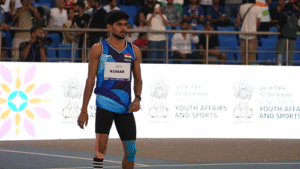Mrs. Meera Sahib Fatima Bibi made history as the first woman judge of the Supreme Court of India in 1989. Her appointment was a landmark achievement in the field of law, breaking new ground for women in the judiciary and inspiring future generations of women to pursue careers in the legal profession. Meera Sahib Fatima Bibi , April 30, 1943 ,Kannur, Kerala, India
- Family Background: Mrs. Fatima Bibi came from a family with a strong emphasis on education and service. Her father, Sahib Meera, was a well-respected public figure, and her mother, Amina, was a source of support for her academic endeavors.
- Education: Fatima Bibi pursued her legal studies at Government Law College, Madras (now Chennai), where she earned her Bachelor’s degree in Law. She excelled academically and was known for her intellectual abilities, dedication, and commitment to the legal profession.
- Practicing Lawyer: Before her appointment to the Supreme Court, Fatima Bibi had a distinguished career in law, starting as a practicing lawyer in the Kerala High Court. Her early career was marked by her expertise in constitutional law, civil law, and family law, which helped establish her as a skilled and respected advocate.
- Judge in Kerala High Court: In 1983, Fatima Bibi was appointed as a judge in the Kerala High Court, where she became one of the few women in India to be appointed to such a prestigious judicial position at the time. She served with distinction and gained a reputation for her fairness, integrity, and legal acumen.
- First Woman Judge of the Supreme Court: In 1989, Fatima Bibi made history by being appointed as the first woman judge of the Supreme Court of India. Her appointment marked a significant milestone in the history of the Indian judiciary and was widely celebrated as a step forward in gender equality and the representation of women in the highest judicial bodies.
- Historical Significance: Fatima Bibi’s appointment as the first woman Supreme Court judge came after decades of discussions and debates about women’s access to the judiciary, especially at the highest levels. Her appointment proved that women were capable of holding top judicial positions, challenging prevailing gender stereotypes.
- Judicial Philosophy: Fatima Bibi was known for her deep understanding of the Indian Constitution, and her judgments reflected a strong commitment to justice, equality, and the protection of fundamental rights. Her approach to law emphasized the empowerment of women, minorities, and marginalized communities.
- Notable Judgments: Fatima Bibi contributed significantly to landmark decisions on various constitutional issues. Her judgments were characterized by their clarity, concern for justice, and commitment to the rule of law. She was particularly interested in matters relating to social justice, women’s rights, and individual freedoms.
- Championing Gender Equality: As a woman judge in the Supreme Court, Fatima Bibi worked to improve the representation of women in the judiciary. She was a vocal advocate for gender equality, both within the court system and in society at large, urging greater inclusion of women in legal and judicial roles.
- Pioneering Role for Women in the Judiciary: Mrs. Fatima Bibi’s appointment as the first woman judge of the Supreme Court opened doors for women in the judiciary, and she became an important role model for aspiring female lawyers and judges across India.
- Role Model for Empowerment: Fatima Bibi’s achievements were a source of inspiration, showing that dedication, hard work, and education could overcome barriers. Her career and life stand as a testament to the power of gender equality, and her efforts helped make the judiciary more inclusive and progressive.
- Retirement: Mrs. Meera Sahib Fatima Bibi served as a judge of the Supreme Court for over 14 years, during which she earned immense respect for her judicial work. She retired in 2000, having left a lasting impact on the Indian legal system.
- Social Work and Advocacy: After her retirement, Fatima Bibi continued to be involved in various social causes, especially those related to women’s empowerment, human rights, and legal education. She worked with several organizations focused on social justice and continued to advocate for the rights of underprivileged and marginalized sections of society.
- Fatima Bibi was widely respected for her service to the Indian judiciary and was honored with various awards and recognition for her contributions to the legal field and for her pioneering work as the first woman judge in the Supreme Court of India.
Mrs. Meera Sahib Fatima Bibi was a trailblazer in the Indian judiciary, becoming the first woman judge of the Supreme Court of India in 1989. Her appointment was a defining moment in the history of women’s rights in India and a critical step forward in the movement for gender equality in the judiciary. Fatima Bibi’s career exemplified professionalism, integrity, and a strong sense of social justice, and she remains an iconic figure for all women aspiring to break barriers and make a difference in the legal and judicial spheres. Her legacy continues to inspire women in the legal profession and beyond.







